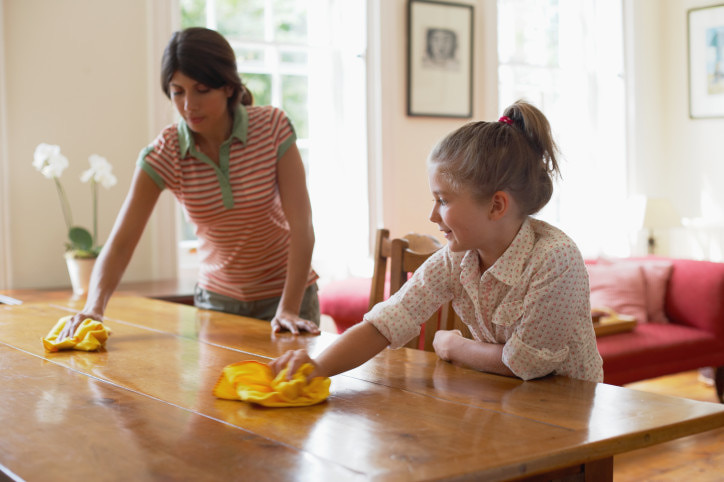When it comes to keeping the house clean, it’s all about organization. If everything has a specific place, then there is less of a chance of it being placed somewhere random. Many of us have coffee tables that seem to be a catch-all for every random article in the house.
While laziness can play a part in this culmination of odds and ends, many of these items can be put away if there were somewhere to put them. Children’s bedrooms are no different than the rest of the house. If there was an easy to find logical place for random toys and books, there is less likely of a chance that the mess could spill into the hallway once the door is opened. Teaching children about organization is key to a happy, healthy home. How can you help children develop better organizational skills.
1. Lead by Example
First, and foremost, you must lead by example. Your children will learn a great deal of their habits from you. If you don’t practice organizational skills in order to help keep your home clear of clutter, then how can you expect them to? For all of the random tidbits throughout your home, why not have your children “help” you discover where these items go? This can help burn the process into memory and could help them put things away when it’s time to clean.
2. Toy Box Labels
One method that many parents do is labeling the toy boxes with pictures and words of what each item is. In our household, we use clear plastic tubs with printed images and words of what each contains. For instance, there is a tub for Barbie’s, one for Zhu Zhu pets, cars, Legos and other toys that can be categorized. This has made a great impact in how well our children have adapted to keeping the room cleaned up.
3. Schedule Time for Cleaning
In our house, we schedule 20 minutes of cleaning per day. This happens before “quiet time” when our daughters can sit in their room quietly and read a book before bed. Because our family is so large, it doesn’t take the entire 20 minutes. And there is often times where we scour the house looking for something to clean before the alarm buzzes. You don’t have to commit to a time table, but it is beneficial to have a set schedule when the whole family participates in cleaning.
4. Interact with Your Child
The most profound way to help them adapt to maintaining organizational skills is to involve yourself. Even if it’s only for a few minutes, children respond better if you are integrated in their lives. While they may clean their bedrooms simply because you said so, there could be far less drama if you involve yourself. Like I mentioned above, leading by example can go a long way, and interacting with your children about the reasons for keeping the house clean may be retained much easier. There is nothing like relaxing on the couch after a long day in a clean living room. It’s almost like a layer of stress melts away from you as you look around and see everything is neat and tidy. If everyone in the house does his or her part, everyone can live to appreciate the experience.
Author Bio: Ken Myers is the founder of http://www.longhornleads.com/ & has learned over the years the importance of focusing on what the customer is looking for. And literally serving it to them. He doesn’t try to create a need. Instead he tries to satisfy the existing demand for information on products and services.


